Pest Control Tips for the Beginning Gardener
Most beginning home gardeners start their gardens wanting to do everything as organically as possible, especially when it comes to pests. But is being an organic gardener simply a matter of swapping out your Sevin dust bottle and replacing it with an organic alternative?
Not necessarily.
While it’s a great start, what I’ve learned over the years is that looking beyond “what can I spray” and instead cultivating a diverse, thriving ecosystem has allowed me to hardly ever use any kind of pesticide in my garden.
How is this possible? I’ve broken it down into ten tips to get you started on cultivating your own pesticide-free organic garden.
*links below contain affiliate links meaning that if you click through and purchase, I will receive a small commission at no cost to you*
Don’t Sweat the Small Stuff
When gardeners start out on their journey, they will see an insect and begin to panic, thinking something needs to be done right away. Most of the time, that’s not true. The majority of the bugs you see in your garden are not going to destroy your crops. In fact, most of them are doing good work (like pollinating or preying on pest insects), or they aren’t affecting your garden one way or the other.
That’s why, in my garden, if I don’t know what a bug is, I leave it alone. It’s probably not doing any harm.
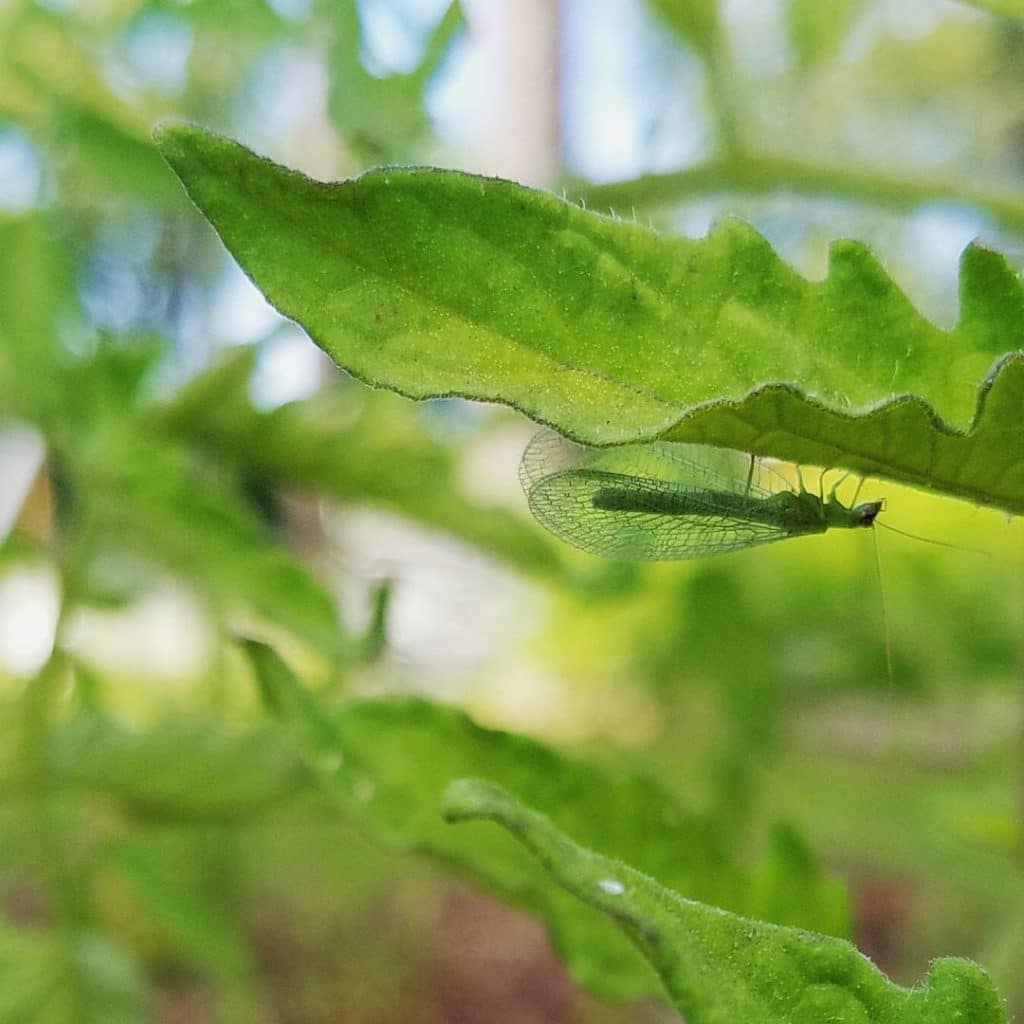
But, there are some bugs that are considered pests in the garden and they are going to hurt your plants in some way. However, even those will likely not cause catastrophic damage. It’s totally normal when you identify a pest insect to want to find out what you can spray right away.
Before we spray even an organic pesticide alternative, we need to take a step back and observe what’s going on before we take action.
An example of this is aphids (pictured below). Aphids hardly ever cause damage that will kill a plant. They are actually the food for beneficial insects we want in our garden. In the case of aphids, then, we need to give mother nature a chance to catch up. To learn more about how to control aphids, click here.
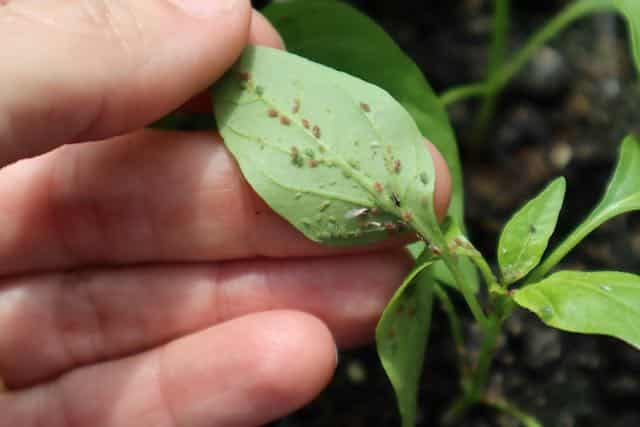
The key here is to assess how much damage the pest is causing. This can be tough for a beginner, and it’s a lesson you’ll learn as you gain experience. Until you have that experience, here is one thing to focus on.
Focus On Plant Health
A stressed plant is more vulnerable to disease and pest pressure. If you’re focusing on your soil health, planting things at the right time and giving them the right amount of water, your plants will be better equipped to deal with pests.
You’ll be surprised how fast pests will flock to a sick or diseased plant. Not only that, but healthier plants can withstand pest pressure much better. This is not to say that a healthy plant is invulnerable, but it will sure be more resilient than a struggling plant.

Homemade Sprays
I see a lot of home gardeners searching on the internet for homemade spray remedies for pest control in their gardens. While this isn’t always bad, you may not have all the information you need before using it in your garden.
It’s always a good idea to test the spray on a leaf or two before spraying your entire garden or a large section of it. I can’t tell you how many times I have seen people use homemade sprays on their plants and the plant simply just couldn’t handle the spray and it ended up killing off the whole plant.
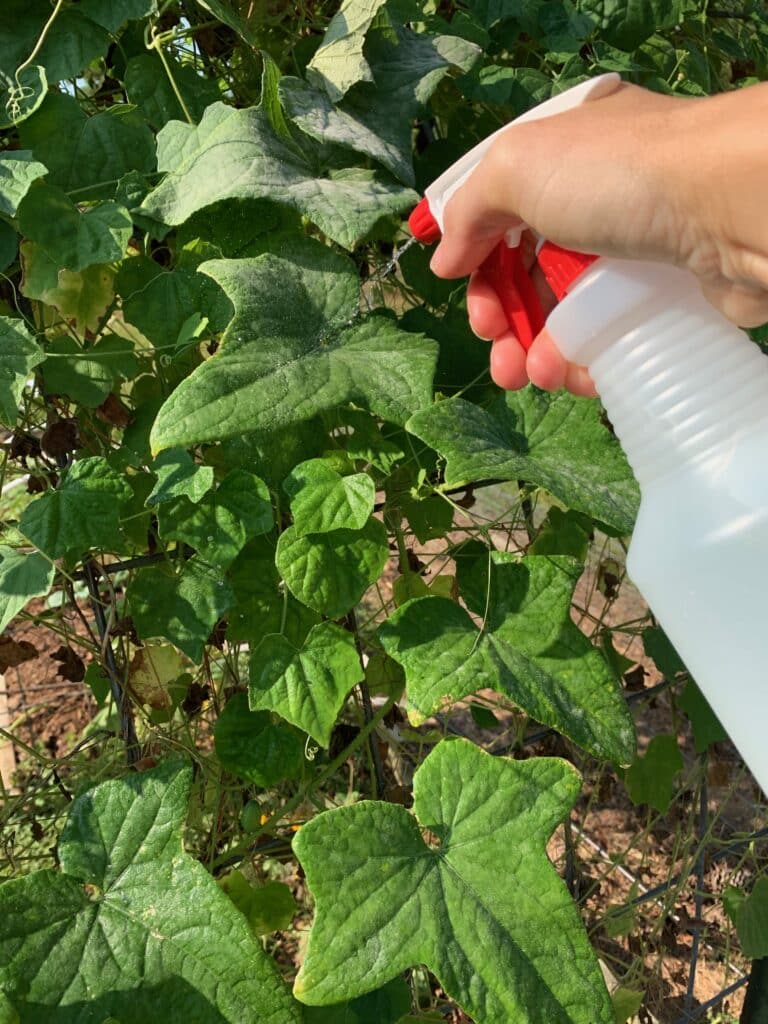
Tip: Don’t use dish soap in your garden because it probably has detergent in it. Instead use a gentle soap like a castile soap.
You also need to know what you’re spraying for. A homemade spray won’t kill everything. Some bugs will die on contact (like aphids) but some have to ingest the poison, so homemade sprays are useless. Before you spray then, do some research to understand if the spray will be effective against the pest in question.
Personally, I rarely use any kind of spray. Instead, I prefer to keep the pests off my crops to begin with. Enter my next tip:
Covers Are Your Friend
When we think of covering our crops, we tend to think of frost fabric or cloches to keep heat in during cold nights.
Once the weather begins to warm up, that won’t work to keep away bugs because it will trap in too much heat. I prefer to use insect netting because it allows air, water and light to still enter and get to the plant where it’s needed. It also prevents moths from landing on your plants such as the squash vine borer moth and cabbage worm moth. (It’s those moths whose babies hatch into the grubs and worms that are so devastating to our plants.)
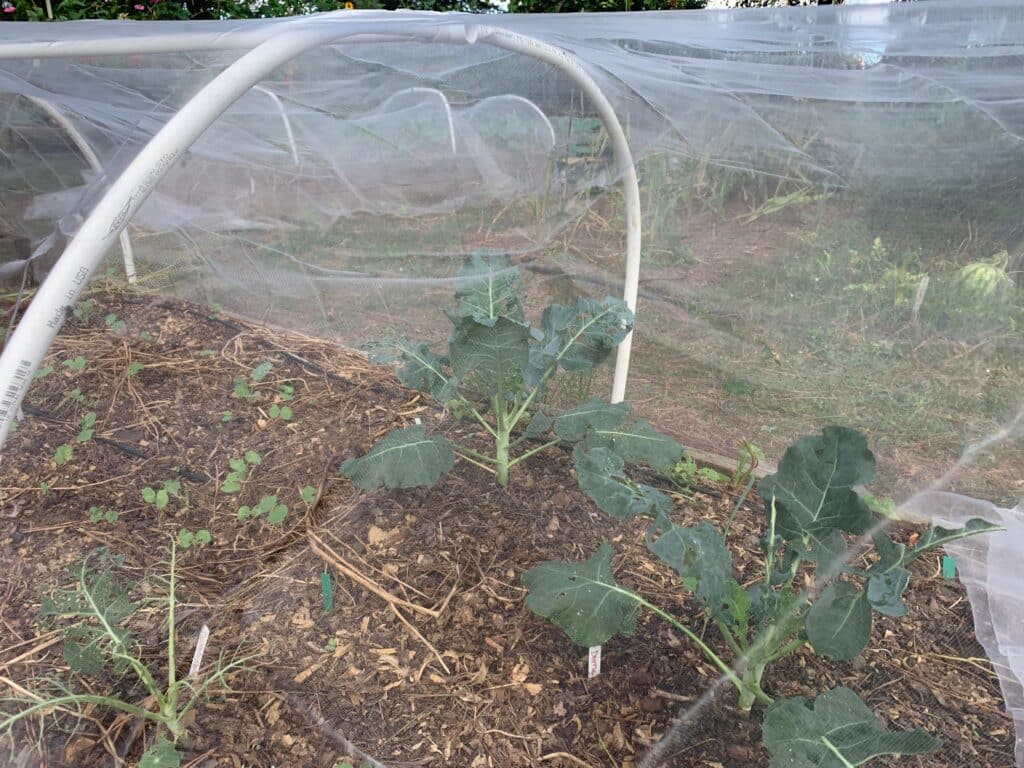
Insect netting can also exclude bugs like beetles or squash bugs from being able to enter your garden row or raised bed. Note that this doesn’t exclude anything that may already be in your soil. But as long as you are practicing crop rotation, you shouldn’t have to worry too much about pests from the soil. To learn more about crop rotation and how to do it, click here.
Understand the Risks
Even when using organic sprays, there are still risk factors to consider. Just because a spray says it’s organic, that doesn’t mean it’s safe for bees, beneficial insects, birds, toads, and other wildlife. Before you purchase any organic insecticide, read the label and understand that it could still be toxic.
With some organic sprays, it is important to still keep them away from flowers or use them in the evenings after the pollinators have gone to bed for the day. Some sprays will lose their threat to pollinators after just a few hours but others remain on the plant for much longer.
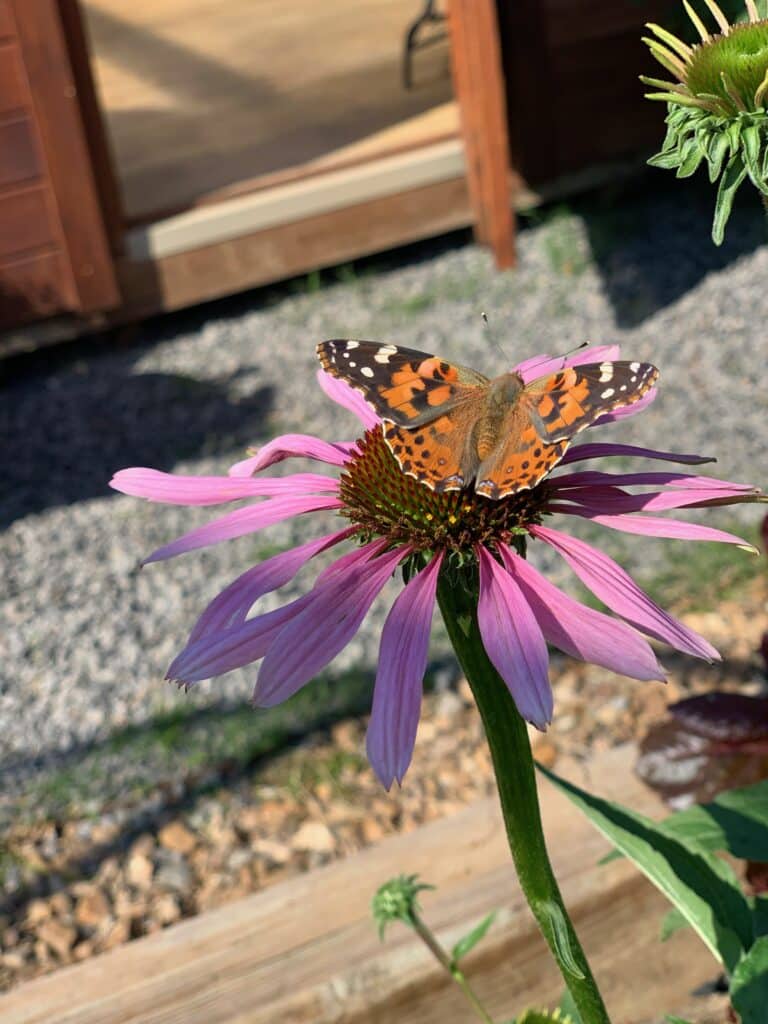
Beware of Well-Intentioned Advice Givers
I’ve seen it time and time again; you join a Facebook group with gardeners that are close to your location and people begin to ask what can be done about a certain pest. The advice given to them, while well intentioned, may not be the best advice.
This is simply because these gardeners in the comment section come from all different beliefs about how the garden should be taken care of. Know for yourself what you want the outcome of your garden to be and do your own research.
The best way to do your own research is to check university websites for their studies on whatever it is you are looking at. Also, your local county extension agencies are a great resource as well.
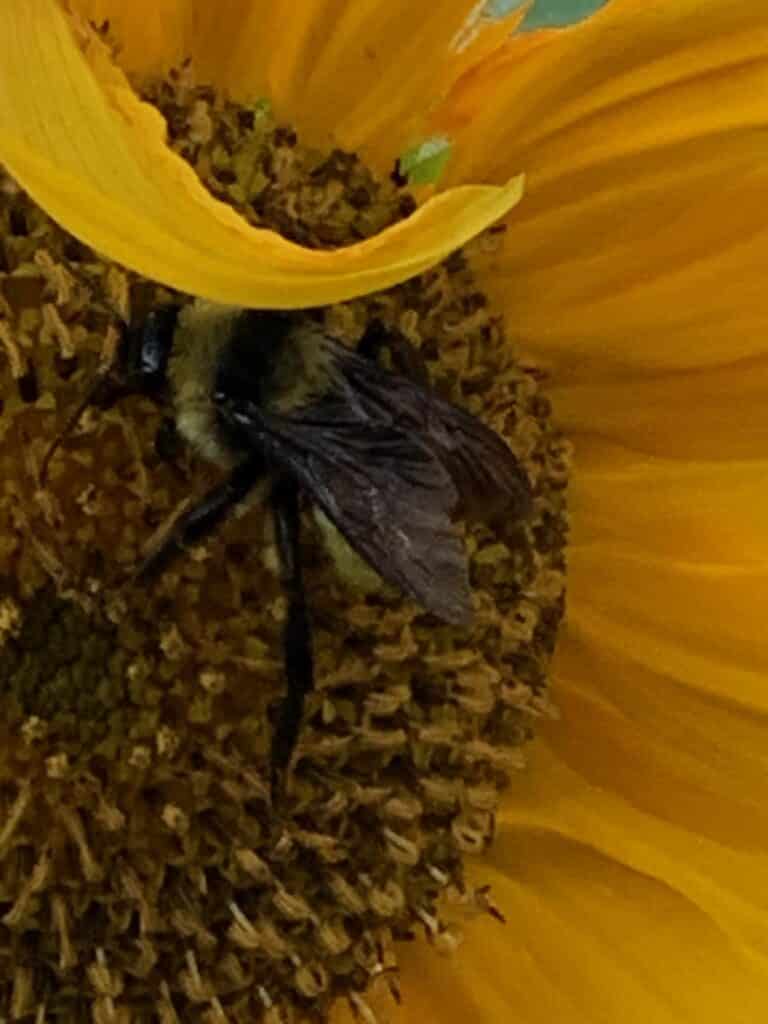
What Works In Someone Else’s Garden, May Not Work In Yours
I can’t tell you how many times I have tried something that someone else swears by and it doesn’t work in my garden. You really have to test it out for yourself to see what works and what doesn’t for you. Things like trap cropping for certain pests could work for one person but not work for you. That doesn’t mean it isn’t worth trying in your garden space but keep it in the back of your mind that nothing is concrete when it comes to growing a garden.
I have noticed with a lot of organic sprays that they usually don’t work after just one application. Sometimes they take multiple applications to work, unlike traditional non-organic sprays that are more of a once and done thing. If I’m being honest with you, I don’t always remember to get on a routine with the organic sprays. Sometimes it’s better to look at different methods that don’t require you to spray on a routine for several days.
Build An Ecosystem In Your Garden
The ultimate goal in growing an organic garden is to build this ecosystem that is thriving and taking care of itself. A good ecosystem in your garden looks like having good bugs such as ladybugs and lacewings that will find your aphid infestation and eat them.
It can also look like you planting certain plants or crops that will attract in syrphid flies and parasitic wasps to your garden — all of which prey on pest insects. The key thing to remember here is that this is a process that takes time. It won’t happen overnight or even your first season maybe, especially if you’re just switching to organic. The beneficial insects have to find your garden after all. But if you stick with it, over time it will begin to take shape.
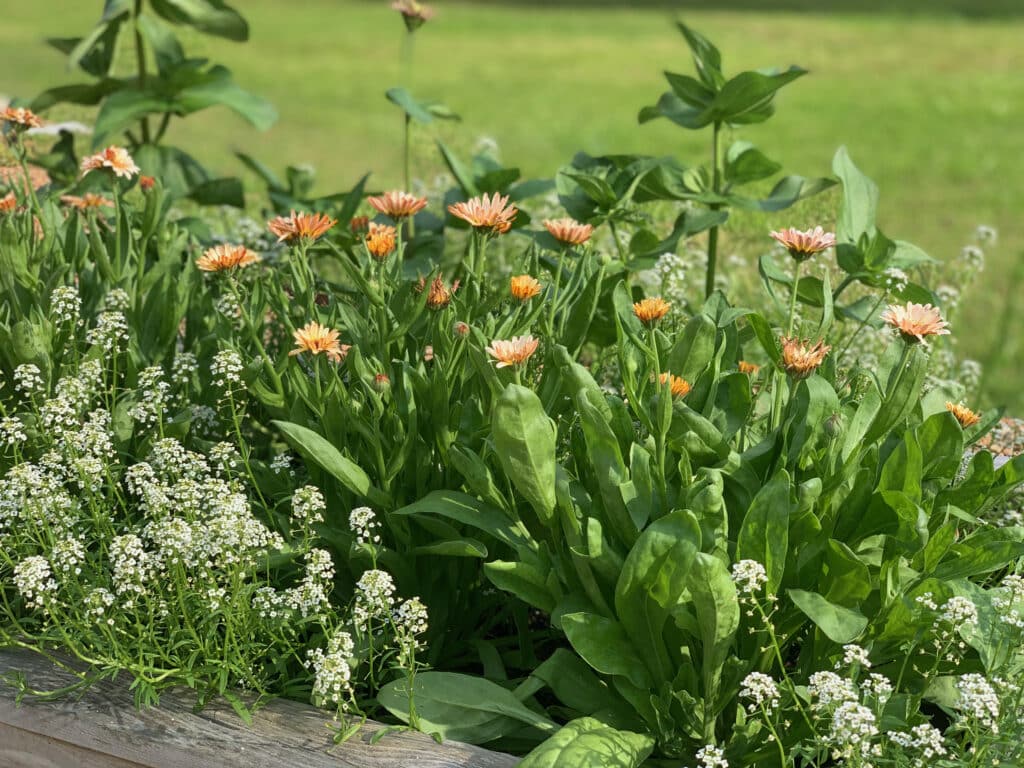
Take Baby Steps
Don’t get overwhelmed with all the things that you could do in your garden to create the organic space you want. Take some time to learn about each individual thing and start implementing them one at a time. Don’t feel like you have to do them all together or even all this year.
You may benefit from learning more in my online mini-course, The Beginner’s Guide to Natural Pest Control. I have mapped out three levels of organic controls from switching out traditional pesticides to organic ones and knowing which ones will work for your problem all the way to knowing how to preclude pest outbreaks and keeping the pests in check.
Do you get overwhelmed with garden planning?

Subscribe here for my best tips to plan your garden in just 7 days -- all for FREE.
Plus, I'll send you my "In the Garden E-mail" on Fridays, periodic updates on garden resources relevant to you, and you'll receive access to my entire bank of free garden downloads!
You are also agreeing to our privacy policy.

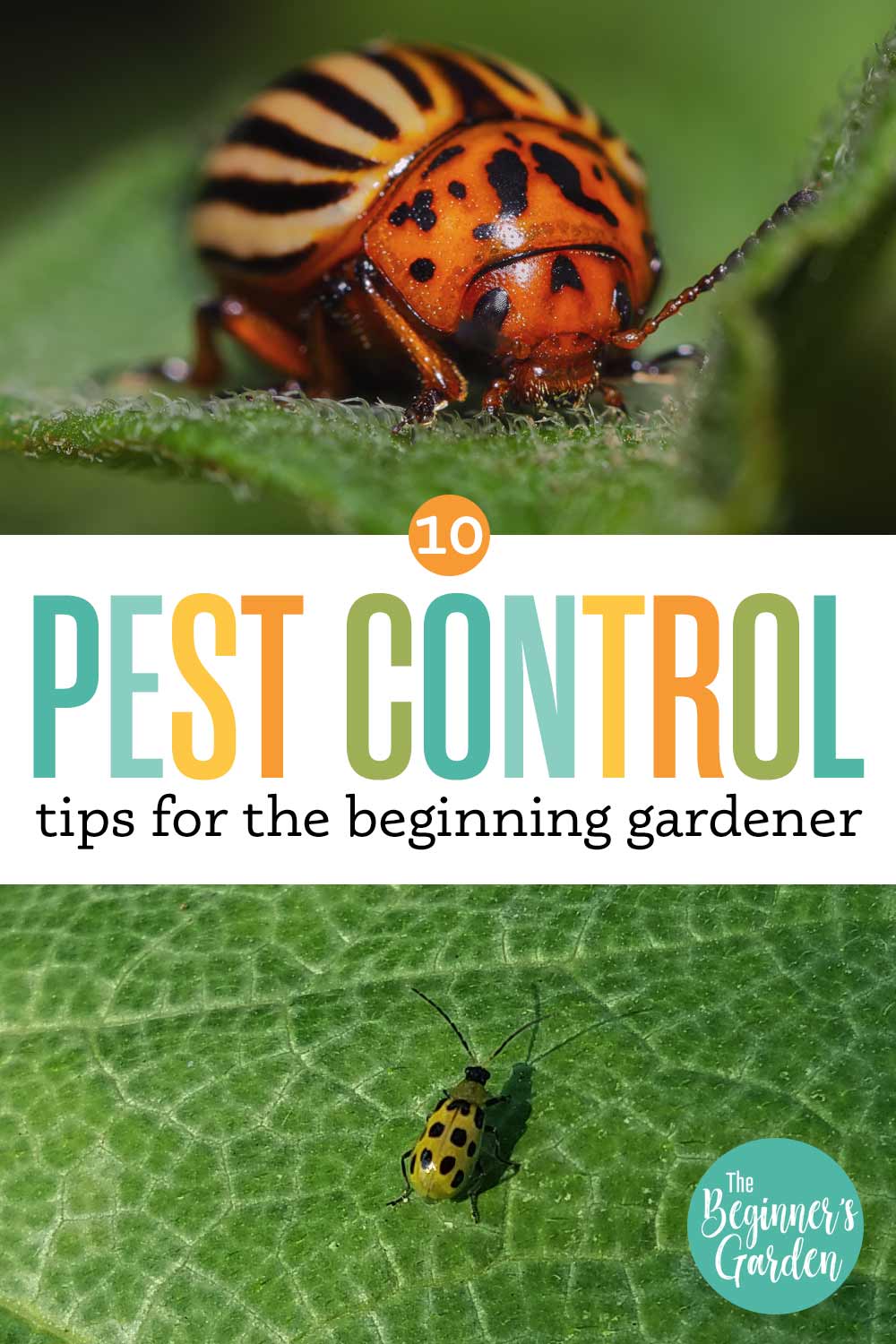
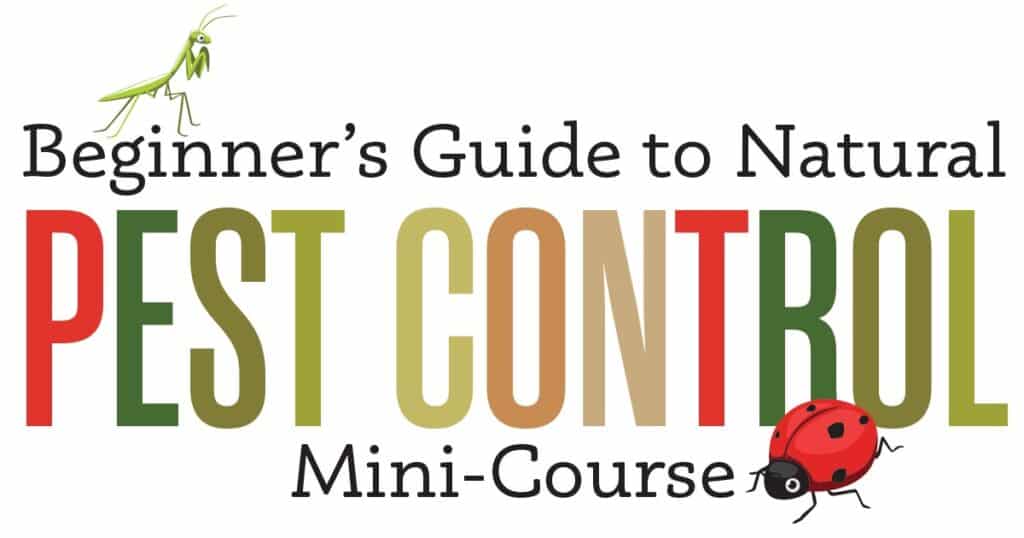
Great post, Thanks.
I have an issue with Japanese Beatles on my fruit trees. My trees are 3 years old and about 6 ft. tall. Last year I purchased some netting bags over the trees to keep the Beatles off. It worked fine but the bags also made the smaller top branches bend down. This year they are still bent over.
Any advice on what I should do this season? 2 years ago the Beatles ate almost 90% of the cherry tree leaves and 20% of the peach leaves. The apples were barely impacted.
I’m sorry, I have no idea. My fruit trees aren’t bothered by Japanese beetles. I’d recommend you contact your local county extension agent for suggestions. If you want to stay organic, you will probably need to tell them that from the beginning, though.